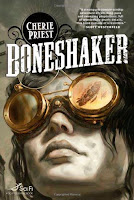[WARNING: POTENTIAL SPOILERS]
Three days ago, I finished Kim Stanley Robinson's
Blue Mars (1996), the final novel in his Mars trilogy. I took nearly a year to read all three books, with breaks -- for various reasons -- between the first two,
Red Mars (1993) and
Green Mars (1994). For me, the Mars trilogy stands not just as one of the true masterworks of 20th-century SF, but also as one of the great achievements in 20th-century fiction regardless of genre.
What follows is not a coherent argument about why I hold such a high opinion of the trilogy, but more a collection of thoughts on the books that should comprise a fairly decent picture of that opinion.
•
Three Books As One. The trilogy needs to be seen as a single whole, not unlike
The Lord of the Rings. It's not just the consistency of the same core characters in the three books, or the central themes that run through and evolve during the series (colonialism, science and/as politics, memory and nostalgia, the powers and perils of human ingenuity, self-interests vs. community interests, debates about terraforming and economic systems, etc.), or the progress of about 200 years of internal and alternate history that tangibly affects the characters' lives. As a single whole, the trilogy maintains a persistent, unifying vision and tone, a particular feel or atmosphere -- centred in Robinson's evocation of the landscape, colours, conditions, challenges, and alienness of Mars.
Also, simply, the trilogy constitutes one long story/narrative, and a story/narrative that closes its circle(s) by returning to its beginning at its end, in an act of narrative nostalgia, reader nostalgia, and character nostalgia, with all three elements changed in the journey from beginning to end and reminded of that change. By the close of
Blue Mars, the weight of everything experienced by the characters and the reader since
Red Mars feels immense, complex, intimate, organic, inspiring, sublime. Humanity has such potential for beauty and wonder . . . it need only overcome itself.
•
Walkabout. Around halfway into
Green Mars, I began thinking of the trilogy as a distinctly "ambulatory" narrative. Characters constantly move about Mars: John Boone's solo navigation of the new world and its burgeoning cultures, or Nadia and Arkady's flight around the planet, in
Red Mars; Nirgal seeing the world for the first time with Coyote in
Green Mars; Ann and Sax, separately, exploring the untouched or increasingly alive parts of the planet in
Blue Mars. There are many more examples, and together they all constitute a sort of baseline plot structure for the trilogy (at micro- and macro-levels). Robinson unfolds Mars to readers by repeatedly taking them on treks and trips and travels over the planet's entirety, above and below ground, in the air and on the seas, even occasionally into orbit. Most importantly, though, he does this through the individual viewpoints of a variety of characters who see and approach Mars with their own motivations, needs, uncertainties, hopes. So, Mars remains perpetually new and surprising; it keeps changing, physically and socioculturally.
Doing this also lets Robinson create and develop what I call the "poetry" of Mars. Whether it's John Boone marvelling at the planet's craters and chasms and chaoses (
Red Mars), or Sax and Maya picking out and naming the different colours of Martian sunsets (
Blue Mars), Mars becomes an utterly fascinating and plausible and concretely detailed alien landscape -- with a beauty all its own, at local and individual as well as global and communal scales. So much of the vision and tone of the trilogy reside in this "poetry" of Mars, whether Robinson spends time carefully detailing the biological/chemical make-up of Martian rock and dirt or the procedures for altering Mars' atmosphere to make the surface breathable. This is how Mars acquires substance, substantiality. This is how Robinson provides opportunities for the reader to become invested in the world, the characters, the story.














